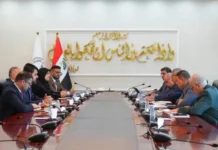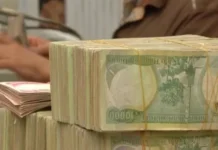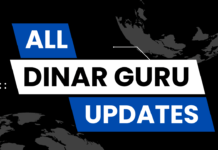On Monday, sources revealed details of a meeting between the Ministries of Finance and Planning and the governors. The meeting was described as frank and highlighted a potential danger to the Central Bank of Iraq.
According to sources interviewed by “Jarida”, the main issue in Iraq is related to the dinar, not the dollar. This is because the government sells oil in dollars to the central bank, which then sells dollars to importers to purchase goods and withdraw dinar from them.
According to her statement, the Iraqi currency generated from the sale of the dollar is given to the government through the Central Bank. This allows the Ministry of Finance to allocate funds for their budget, including salaries and various projects. As the money circulates and accumulates with merchants, their demand for the dollar will increase, creating a continuous economic cycle.
She explained that the government owns the dollars from oil sales, but the central bank cannot sell them due to US restrictions.
She explained that if we monitor the amount of dollars sold by the Central Bank from the beginning of the year until now, it is not enough to cover just the salaries in the budget. This indicates that the Central Bank had to buy dollars and use its cash reserves in dinars, which are about to expire, to make up the difference.
Unnamed sources have cautioned that the Central Bank may soon face a challenging and precarious decision. Specifically, they suggest that the bank may be forced to increase the production of Iraqi dinars and distribute them more widely. However, this move could have negative consequences, including a rise in inflation and prices.
She added, “Furthermore, the government won’t be able to carry out its ambitious budget and fund projects in all provinces due to insufficient funds. This is evident from the complaints raised by the governors about the lack of funding, which was further highlighted during the Finance Committee’s meeting with them.”




